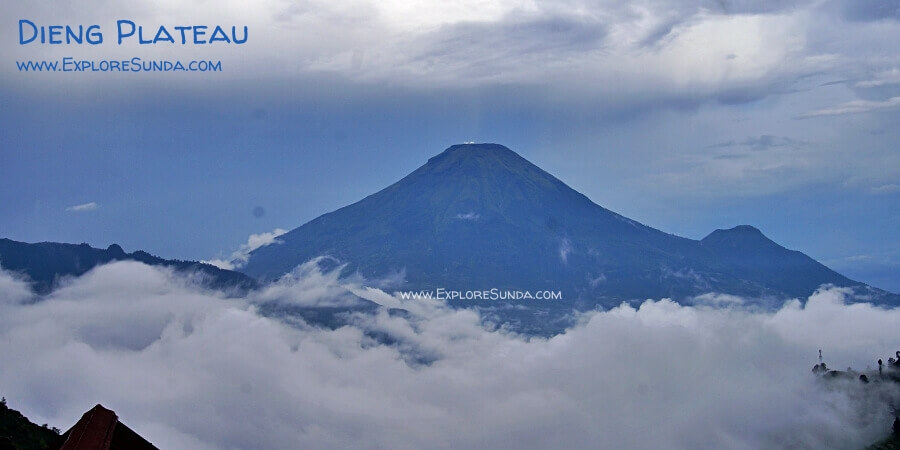- Sunda
- Famous Museums in Indonesia
- Museum Bank Indonesia
Museum Bank Indonesia
at District Museum in Kota Tua Jakarta
Similar to other museums in Kota Tua Jakarta, Museum Bank Indonesia uses a historical building. The difference is this building was intended and used as a bank since the beginning.
Museum Bank Indonesia resides in a grand building across Jakarta Kota train station. Initially, it was De Javasche Bank building, then in 1953 it was nationalized and became Bank Indonesia. Since Bank Indonesia occupies the new office in Jalan MH. Thamrin no. 2, Jakarta, this historical building in the Jakarta old town was renovated and in 2009 it became Bank Indonesia Museum.
Exploring Museum Bank Indonesia
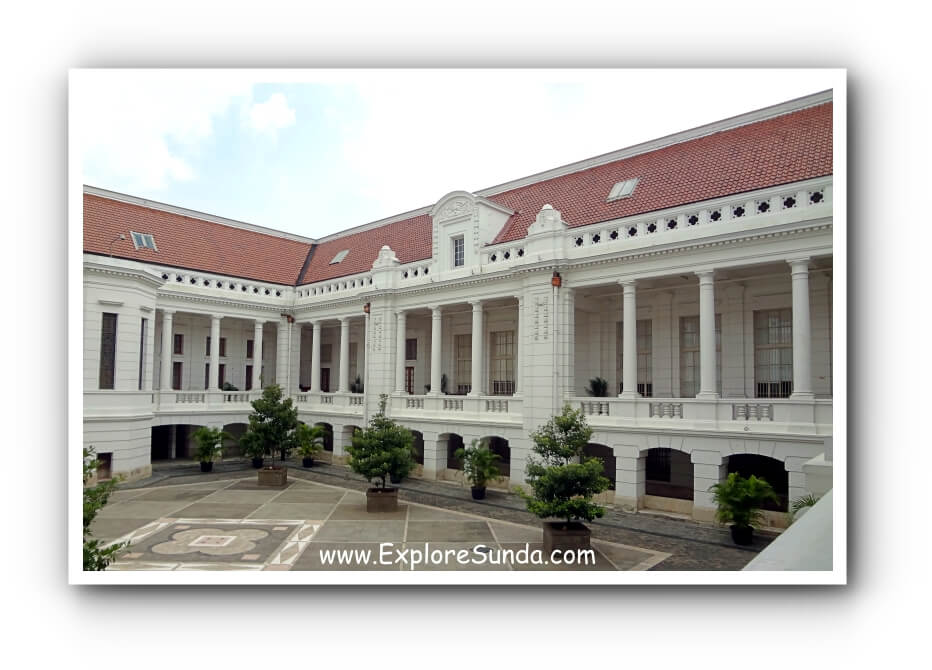
One thing that makes Museum Bank Indonesia stands out from other museums is the security of this museum, which feels like we are entering an airport instead of a museum. We have to pass the security check at the front door and we are not allowed to bring our bag inside the museum. We can borrow a small plastic bag to carry our valuables though.
The museum itself only occupies a portion of the ground floor, which is divided into 4 zones:
- Reception area.
- History of money in Indonesia, including the history of the central bank of Indonesia.
- Offices of the bank.
- Numismatic collection.
The reception area is the location where it used to be the front office of the bank, where the tellers are located. We could see several teller booths here. This part of the building is beautifully decorated with stained glass windows.
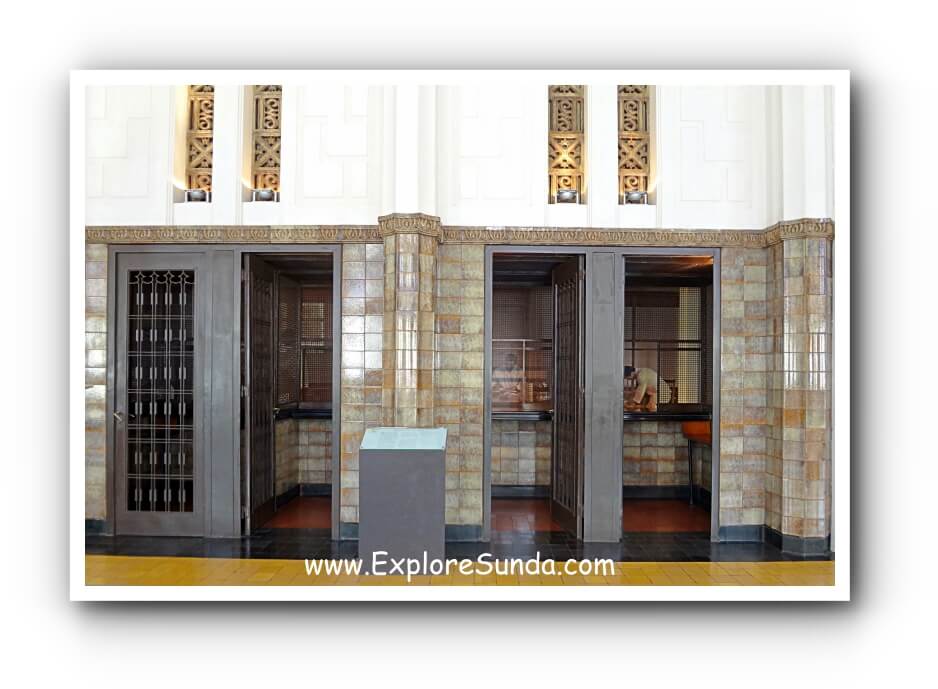
The next zone is the history of money in Indonesia. The information here is presented through diorama, pictures and narrated story.
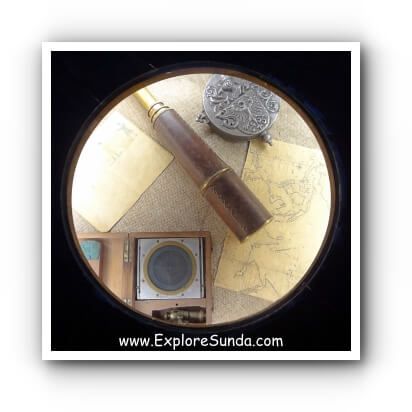
The story started from centuries ago when many traders came to Indonesia looking for commodities, especially spices. The top three spices were: nutmeg, clove, and sandalwood.
During Dutch colonization, the first bank, Bataviasche Bank van Leening was founded by Governor General Van Imhoff in 1746. The next Governor General, Mossel, established Bank Courant in 1752 and later on merged these two banks. It became Bank Courant en Bank van Leening.
The history continues to the colonization by Japanese to the Indonesian independence day in 1945. At that time Indonesia did not have any central bank yet. Hence, it was stated that Bank Indonesia would become the central bank of Indonesia. However, the establishment of the central bank was not that simple.
Next, you will learn the struggle of Indonesia as a new born country to maintain the value of the money. The value hit the bottom in 1950 when Indonesian government took a drastic measure by cutting all bank notes into two, one part was exchanged into government bonds and the other part could be used for transaction but the value was only half.
The next catastrophe was the monetary crises in 1998. Many banks were closed. The economy reached the rock bottom. Almost two decades later Indonesian economy has climbed again, but Rupiah exchange rate and prices have not returned to their rate prior to 1998.
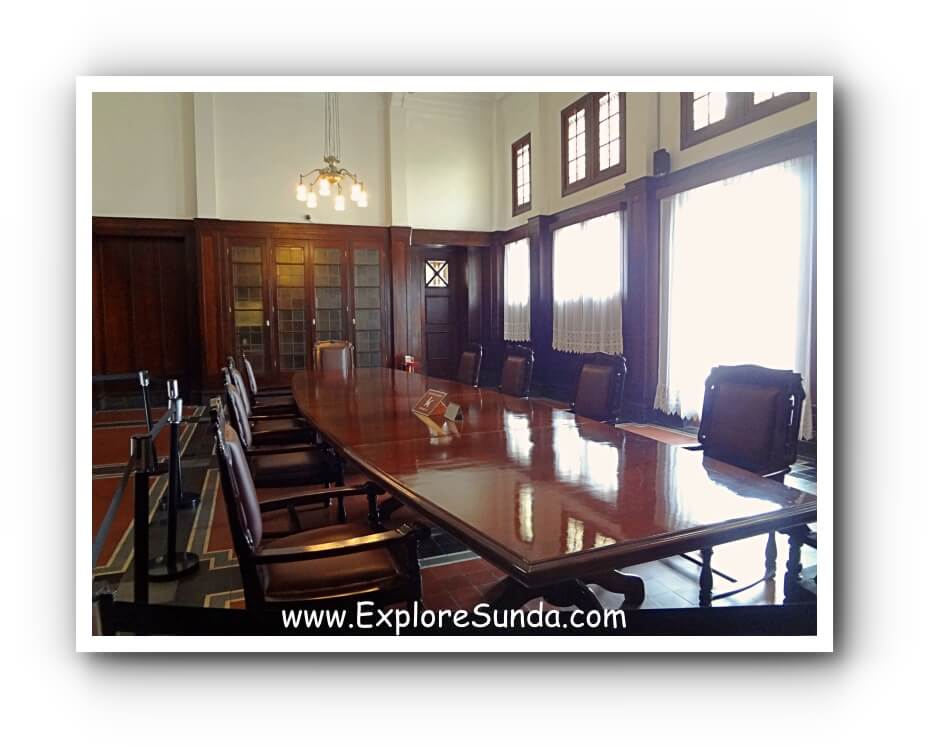
The next section of the museum displays how the offices in this building look like. They are fully furnished with beautifully carved teak wood furniture, wide windows and white curtains.
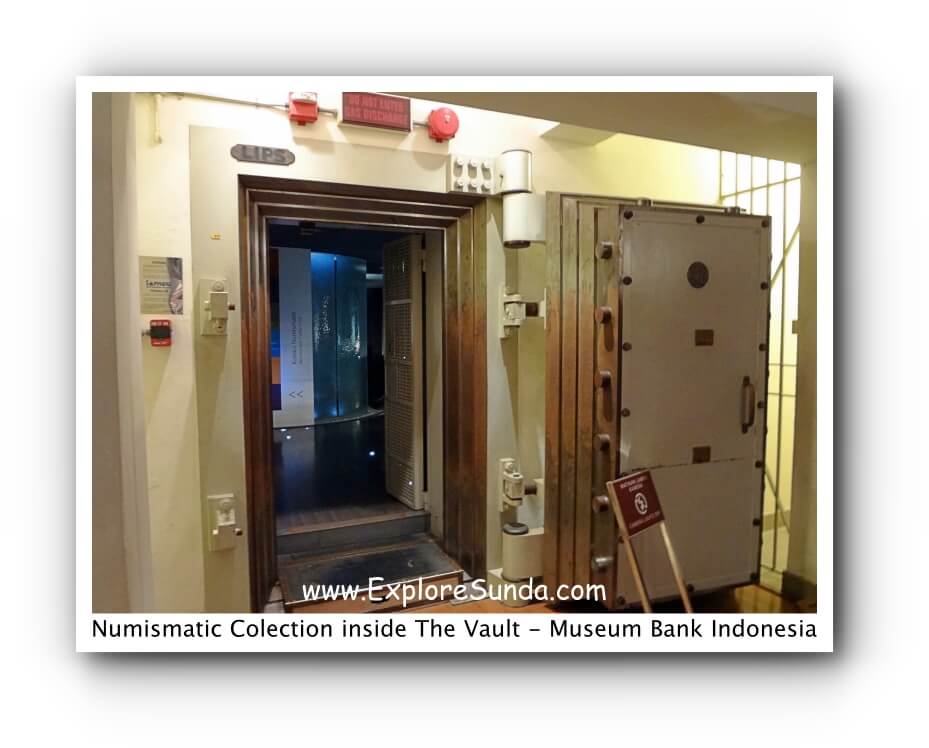
Passing through the open corridors, you will walk into the bank's vault to see the numismatic collection. It is the collection of all the bank notes that has been created in Indonesia. In addition to Indonesian bank notes, the museum also has a collection of other countries money.
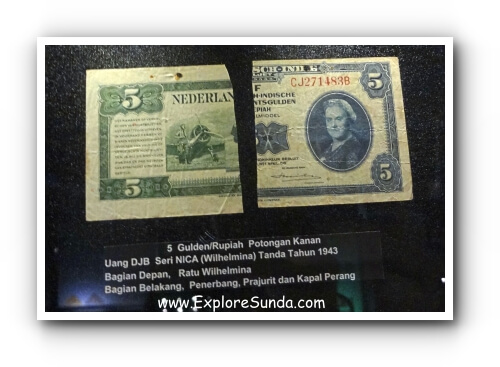
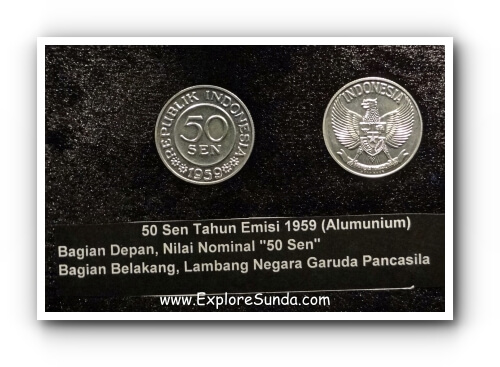
Then you will see a connecting door nearby, where you will find a treasure: a mountain of gold bars! I don't know whether they are real or not, but considering the tight security of Museum Bank Indonesia, I want to believe they are real :)
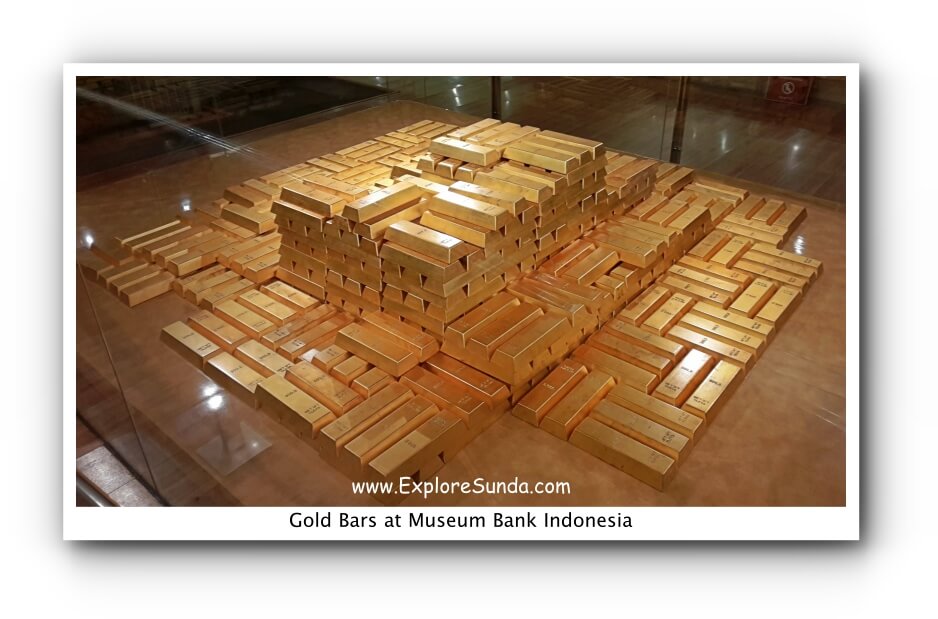
Directions to Museum Bank Indonesia
Museum Bank Indonesia is easily spotted, since it is located across Jakarta Kota train station and TransJakarta bus stop. So, it is very accessible when you use a public transportation. The real challenge is how to cross the street!
There is a traffic light nearby dedicated solely for people crossing the street, but most of the drivers ignore it. I would say the streets surrounding the Jakarta Old Town is brutal, very very difficult to cross them. Hence, I always wait for others, who are obviously braver than me, and follow them :)
Address:
Jl. Pintu Besar Utara 3
West Jakarta - Indonesia
Visiting Hours:
Tue-Fri: 08.00am-03.30pm
Sat-Sun: 08.00am-04.00pm
Closed on Mondays & Public Holidays
Ticket:

Museum Bank Indonesia is one of the six museums in Kota Tua Jakarta. Mandiri Bank Museum is right next door, while Jakarta History Museum, Wayang (Puppet) Museum, and Fine Art and Ceramic Museum are surrounding Fatahillah square. Check them all out :)
- Sunda
- Things to do in Jakarta
- Museum Bank Indonesia
Recent Articles
-
Discover the Vibrant Celebration of Imlek in Indonesia!
Jan 13, 25 03:24 AM
The Chinese New Year of 2576 will be celebrated on January 29, 2025. Discover the special things in this Imlek festival! -
The Site Map of ExploreSunda.com
Nov 26, 24 10:40 PM
A thorough site map to help you browse through the Explore Sunda site. -
The Best Road Trip to Dieng Plateau Wonosobo: Sightseeing, Eat & Sleep
Nov 19, 24 11:52 PM
Explore the stunning Dieng Plateau in Wonosobo, with its cold above the cloud highlands, ancient temples, and breathtaking tea plantations. Visit in August and treat yourself to the Dieng Culture Fest…
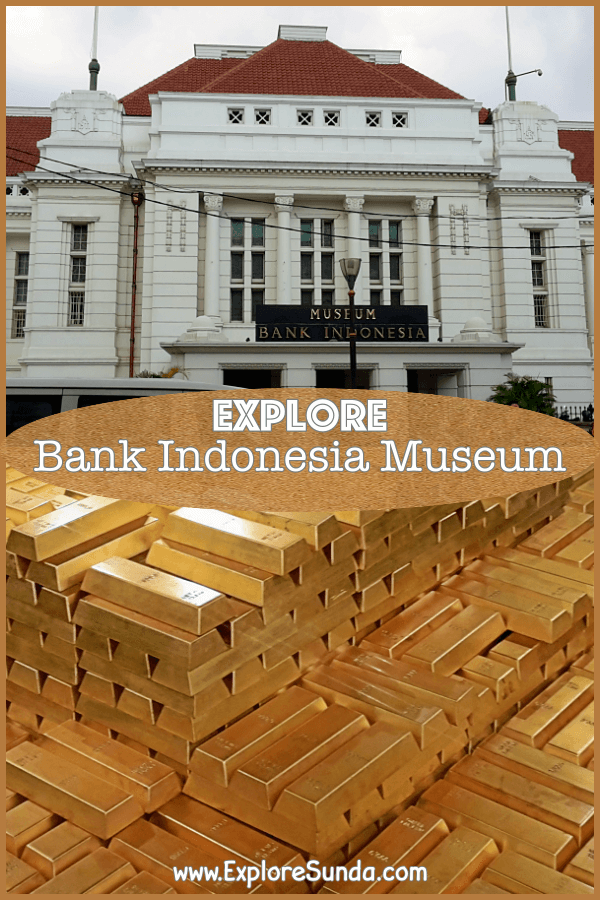
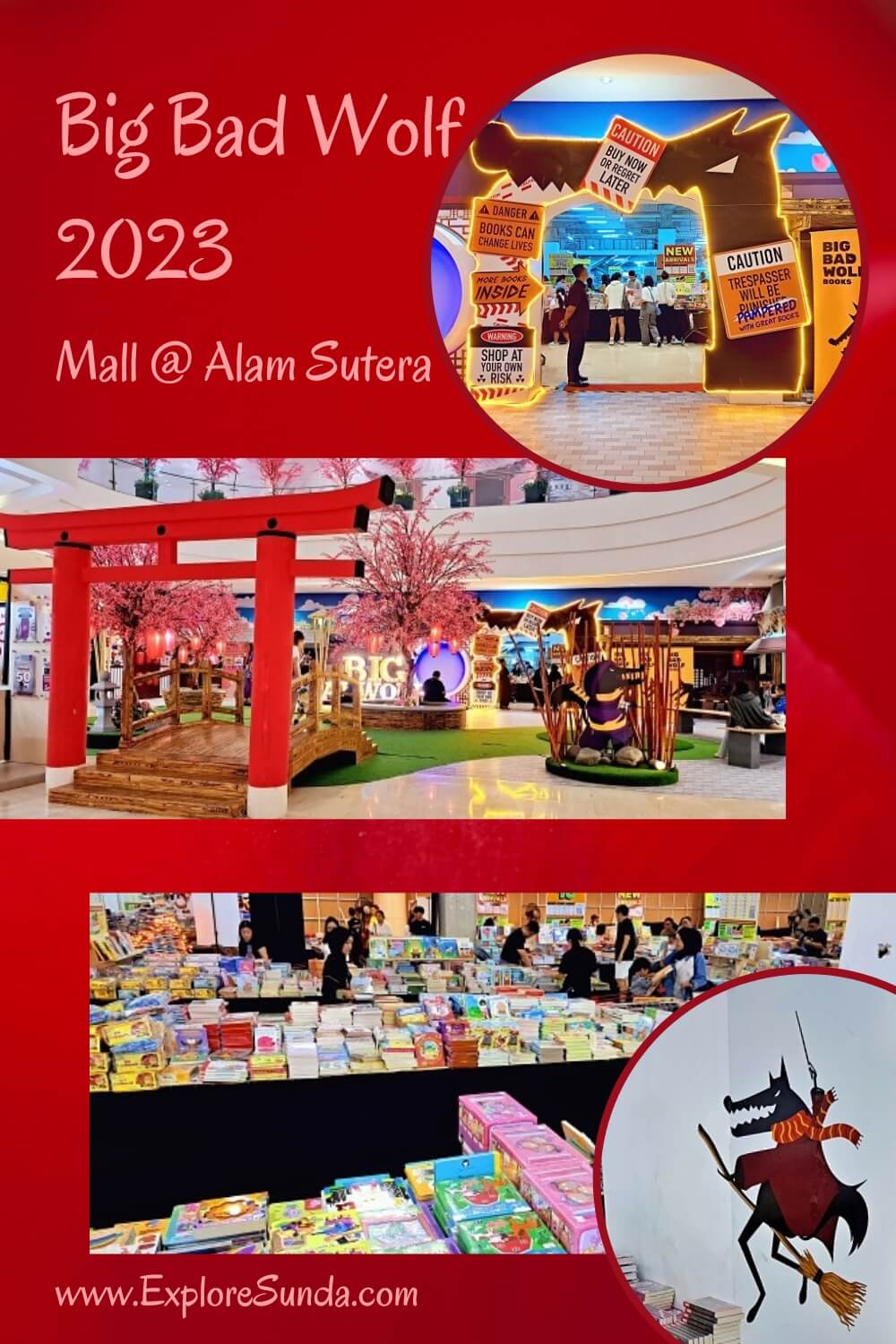



![At Taman Mini Indonesia Indah [TMII] you can explore Indonesia in one day to see the flora, fauna and cultural diversities.](/images/tmii-H4.png)


![Explore the 18 museums in Taman Mini Indonesia Indah [TMII], from fauna, cultures to science!](/images/tmii-museum-pinterest.jpg)





